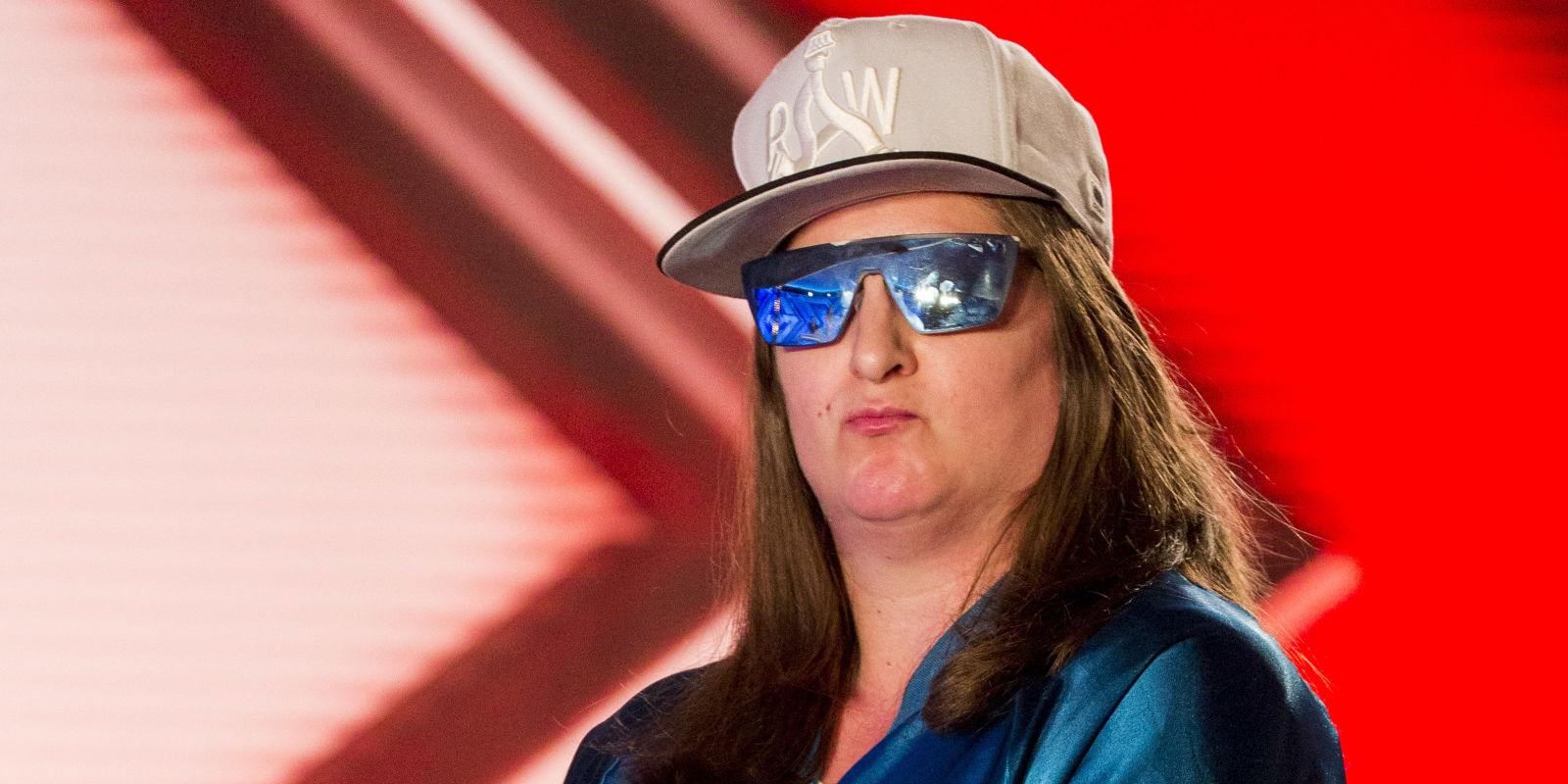Honey G has become a national sensation. A contestant on the current series of X-Factor, she’s managed to make it into the top 5, beating out acts like Sam Lavery (once saved by the public lifeline vote) and Ryan Lawrie. If you knew nothing about Honey G, it’d be easy enough to assume that she’s at least slightly talented considering she made it into the Top 5. In reality, she really isn’t.
Honey G is a “rap” act. She wears stereotypical “rap” clothes, speaks “urban” and does covers of classic hip-hop songs. The problem isn’t that Honey G is a white rapper—Eminem is considered by many to be one of the most talented rappers in the history of rap; the problem is that Honey G is a white person who takes all the superficial parts of rap, all the stereotypes and conventions, and strips them of their context, essentially parodying the genre.
This is, for lack of a better term, problematic, because rap is inseparable from black culture. It’s a more inclusive genre now, with rappers like Macklemore, Eminem and Watsky, but even they acknowledge and respect the fact that rap emerged from the struggles of black Americans in a post-slavery America. Rap was/is the expression of black discontent and black struggles. Modern rap’s emphasis on material success stems directly from the socio-economic position of the black inner-city Americans in modern America.
For Honey G (an outsider) to come into this culture and to take the surface-level parts—the outfits, the slang—and to exaggerate them to the point of parody is unabashed cultural appropriation. Her performances are reductive, oversimplified takes on black culture, without any merit to save them. If her performances were actually good, it would be less clear cut; a good cover artist may be insensitive, but at least they’re doing the original material justice. Honey G doesn’t have flow, vocal ability or dance skills.
Honey G isn’t a rap act. She’s a comedy act. On the broadcasts of her performances, there are more shots of laughter from the audience than there are shots of applause. It would probably be for the best if we took a moment to examine just why we laugh at Honey G. After all, a majority-white audience laughing at an act who lampoons black culture sounds suspiciously like the minstrel shows of the 19th–20th Century. It may seem an extreme example to make, but both Honey G and minstrels appropriate black culture for comedic purposes to cater to the tastes of a largely white audience.
Though the racism of cultural appropriation isn’t as damaging as more explicit racism, like hate crimes and systemic racism, it is still harmful. And if you’re still not convinced that race has anything to do with Honey G’s success, ask yourself this: would Honey G have made it this far on X-Factor if she were a young black man instead of a thirty-something-year-old white woman?
Mikhali Hanafi
(Image courtesy of Digital Spy)

